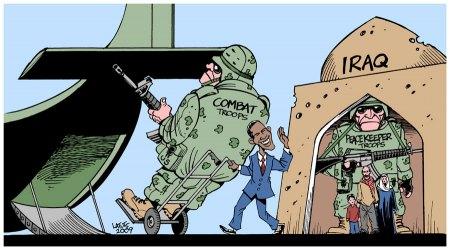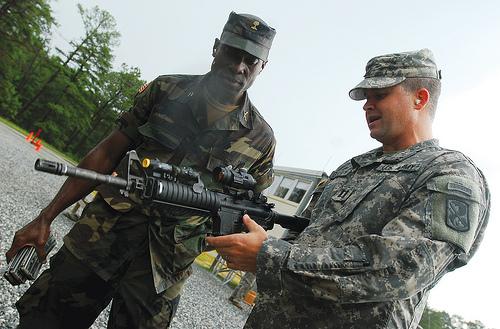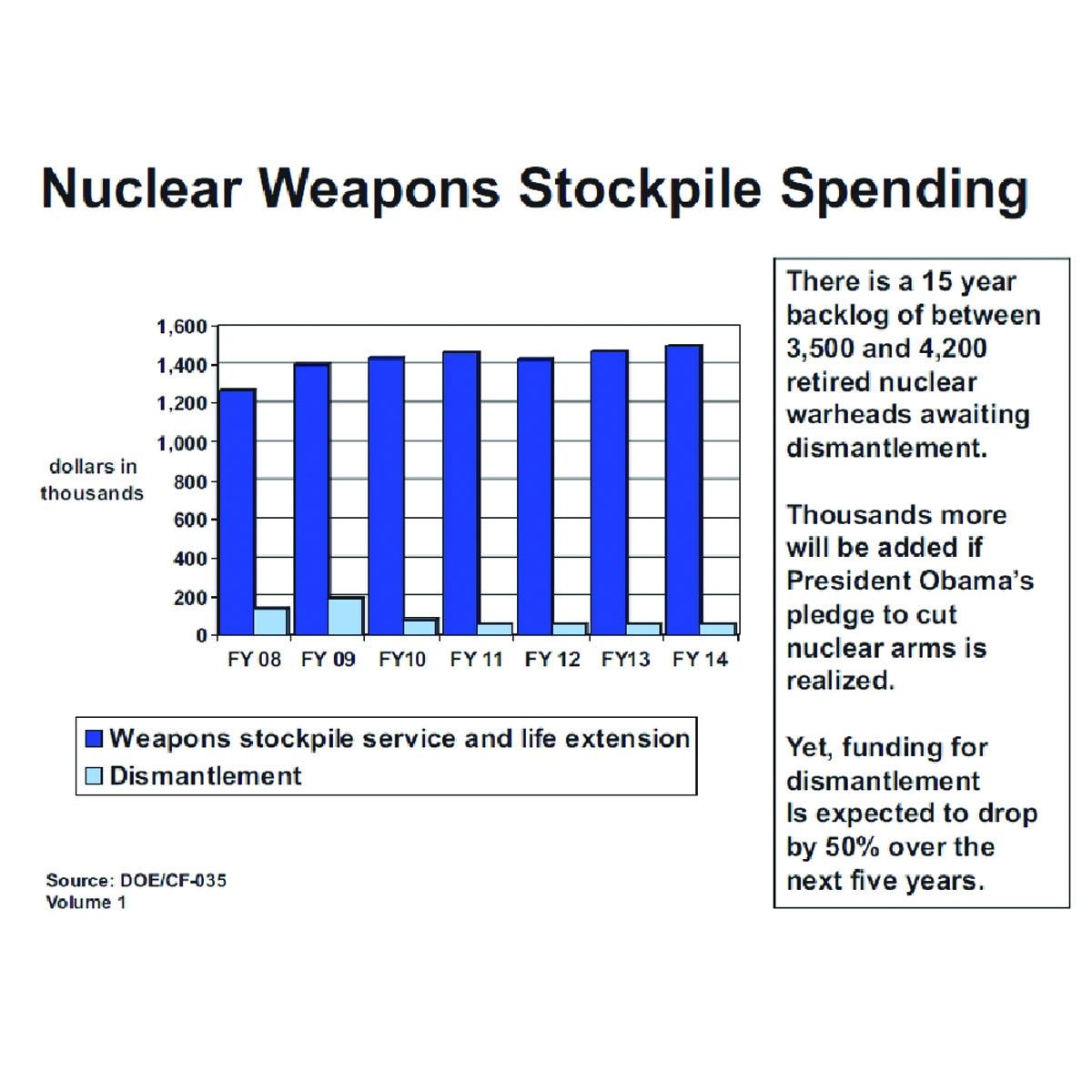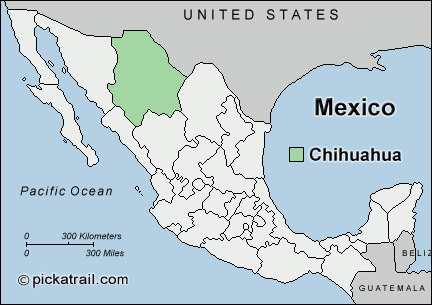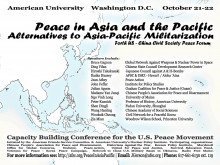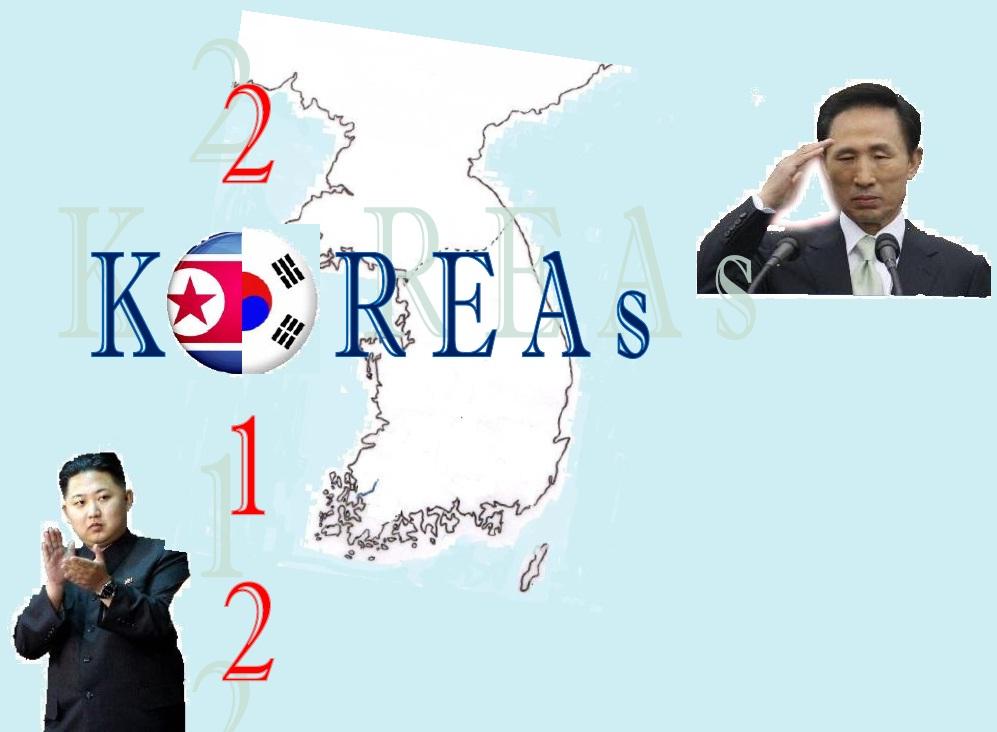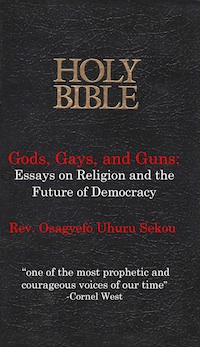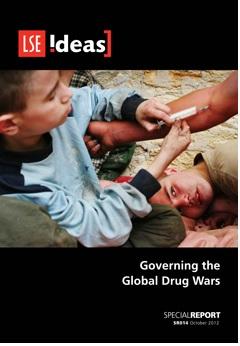Events
militarism
IPS Mandate for Change Election Series: War and Peace
IPS Conference Room 1301 Connecticut Avenue, NW, 6th Floor, Washington, DC, United StatesThis election season, please join the Institute for Policy Studies in our series of provocative brown-bag luncheon discussions of the various issues in the platforms of the Democratic, Republican, Green, and Independent presidential candidates. IPS and Chester Hartman have a new book coming out at the culmination of this brown-bag series, Mandate for Change, which will put forth what we feel are the best and most creative policy solutions for these and other pressing local, national and international issues.
Phyllis Bennis, Fellow, New Internationalism project, IPS
Selig Harrison, Senior Fellow, Center for International Policy
William D. Hartung, Director, Arms and Security Initiative, New America Foundation
Moderator: John Feffer, Co-Director, Foreign Policy In Focus, IPS
Please RSVP to Adwoa Masozi at adwoa@ips-dc.org.
Issues of war and peace are at the center of the presidential race. Barack Obama opposed the invasion of Iraq while John McCain was one of the major supporters of the surge, and their positions on the withdrawal of U.S. troops remain far apart. Looking beyond Iraq, the candidates have taken different positions on U.S. policy toward Iran, Afghanistan, and Pakistan. They have disagreed with one another on face-to-face diplomacy with U.S. adversaries. Will the upcoming elections represent a watershed for U.S. engagement with the world, signaling a return to diplomacy and support for multilateralism? Or has a new bipartisan consensus emerged around high military spending, maintenance of 700-plus military bases worldwide, and continued intervention in countries like Afghanistan and Pakistan? Phyllis Bennis of the Institute for Policy Studies, Selig Harrison of the Center for International Policy, and William Hartung of the New America Foundation will explore these questions and more.
IPS fellow Phyllis Bennis is also a fellow of the Transnational Institute in Amsterdam. She has been a writer, analyst and activist on Middle East and UN issues for many years, primarily on opposing the Israeli occupation of Palestine and the U.S. occupation of Iraq, along with work on Iran, Afghanistan and more. In 1999 Phyllis accompanied a group of congressional aides to Iraq to examine the impact of U.S.-led economic sanctions on humanitarian conditions there, and later joined former UN Assistant Secretary General Denis Halliday, who resigned his position as Humanitarian Coordinator in Iraq to protest the impact of sanctions, in a speaking tour. In 2001 she helped found and currently serves on the steering committee of the U.S. Campaign to End Israeli Occupation. She works closely with the United for Peace and Justice anti-war coalition, and since 2002 has played an active role in the growing global peace movement. Her books include the just-published Understanding the US-Iran Crisis: A Primer and the forthcoming Ending the Iraq War: A Primer as well as Challenging Empire: How People, Governments and the UN Defy U.S. Power and other titles.
Selig S. Harrison is director of the Asia Program and the Iran Program at the Center for International Policy and a senior scholar of the Woodrow Wilson International Center for Scholars. He has specialized in South Asia and East Asia for fifty years as a journalist and scholar and is the author of five books on Asian affairs and U.S. relations with Asia, including Korean Endgame: A Strategy For Reunification and U.S. Disengagement, published by Princeton University Press in May 2002. Harrison served as South Asia Correspondent of the Associated Press from 1951 to 1954, in New Delhi, returned as South Asia Bureau Chief of The Washington Post from 1962 to 1965, and served as Northeast Asia Bureau Chief of the Post, based in Tokyo, from 1968 to 1972. From 1974 to 1996, as a senior associate of the Carnegie Endowment for International Peace, he pursued investigative assignments every year in a variety of countries, especially those where he worked as a journalist, such as India, Pakistan, China, Japan, and the two Koreas. He covered Iran for The Washington Post in 1964 and 1965, did research there for the Carnegie Endowment in 1977 and 1978, and revisited Teheran in June, 2007 and February and June, 2008. His articles on Iran have appeared in Le Monde Diplomatique, The Washington Post, The Financial Times, Newsweek International and the International Herald Tribune.
William D. Hartung is director of the Arms and Security Initiative at the New America Foundation. The project serves as a resource for journalists, policymakers, and citizen's organizations on the issues of weapons proliferation, the economics of military spending, and alternative approaches to national security strategy. Before coming to New America, Mr. Hartung worked for 15 years as director of the Arms Trade Resource Center at the World Policy Institute at the New School in New York City. He was also a policy analyst and speech writer for New York State Attorney General Robert Abrams, and a project director at the New York-based Council on Economic Priorities. An expert on weapons proliferation, the politics and economics of military spending, regional security, and national security strategy, Mr. Hartung is the author of numerous books, reports, and chapters in collected works on the issues of nuclear weapons, conventional arms sales, and the economics of military spending. He has served as a featured expert on the major network and cable news outlets, and has written for national and international newspapers and magazines on a variety of national security issues. His most recent book is Lessons from Iraq: Avoiding the Next War, co-edited with Miriam Pemberton and released by Paradigm Press in May 2008.
Panel Discussion: Military Spending in Northeast Asia
Columbia University, 403 Kent Hall 116th Street & Amsterdam Ave., New York, NY, United StatesThe world spent $1.5 trillion on the military in 2008. Nearly 70 percent of that money was spent by the countries involved in the Six Party Talks (United States, China, Russia, Japan, South Korea, and North Korea). The region of Northeast Asia is full of conflict. It is also full of the world's most sophisticated weapons. And all of the countries are adding to these arsenals every day.
Iraq: A Teach-In on the Legacy of the Seven-Year U.S. Occupation
Busboys & Poets - 14th & V 2021 14th Street NW, Washington, DCThousands of U.S. troops are leaving Iraq -- but more than 50,000 troops and tens of thousands of US-paid mercenaries remain. US "combat operations" are ending, but Iraq remains mired in war.
The Political Economy of African Responses to the U.S. Africa Command
IPS Conference Room 1301 Connecticut Avenue, NW, 6th Floor, Washington, DC, United StatesWhat accounts for African responses to the creation of the U.S. Africa Command? Rather than attributing negative reactions to Pentagon “public relations” errors, a content analysis of over 500 African news reports shows that countries sustaining high levels of growth with lower overall levels of foreign aid were more critical of AFRICOM – even if they are traditional American allies. The findings, to be published in Africa Today, suggest that recent economic progress among African countries is contributing to their policy latitude.
Workshop on the Elimination of Nuclear Weapons in the United States
IPS Conference Room 1301 Connecticut Avenue, NW, 6th Floor, Washington, DC, United StatesA workshop and discussion about the steps the U.S. can take on its own to demonstrate leadership and commitment to the elimination of nuclear weapons and nuclear non-proliferation. The workshop will also address what we can do to pressure the government into taking such steps.
10 Things You Might Not Know About the Military; Reflections From A Formerly Enlisted Navy Petty Officer
IPS Conference Room 1301 Connecticut Avenue, NW, 6th Floor, Washington, DC, United StatesMany progressives assume those who serve in the military are conservatives.
Report Back: Unique Trip To Chihuahua, Mexico
Luther Place Memorial Church Vermont Avenue Northwest, Washington, DC, United StatesPuppet Underground and IPS expert, Sanho Tree, will give a report back from their trip to Chihuahua, Mexico this past December, where they partnered with several community groups doing music and puppetry workshops. The trip culminated in a Fandango on the border between Ciudad Juarez and El Paso, TX on December 11th.
Peace in Asia and the Pacific
Kay Spiritual Life Center 4400 Massachusetts Avenue, NW, Washington, DC, United StatesThe U.S. still has more than 100 military bases and installations across Japan, exacting a heavy toll on both the Japanese and U.S. people and increasing the dangers of war. In Korea, activists have engaged in hunger strikes and been jailed for opposing construction of the new Jeju naval base.
The Two Koreas in 2012: Dramatic Change on the Horizon
IPS Conference Room 1301 Connecticut Avenue, NW, 6th Floor, Washington, DC, United StatesThe aim of the event is to foster a discussion on the potential for significant change in North Korea, South Korea, and North-South relations over the course of the upcoming year. The event will feature three keynote speakers including Wookshik Cheong who is the director of Peace Network in Seoul, up and coming South Korean activist Youn-Ae Park who has worked to halt the construction of the naval base on Jeju Island, and FPIF’s very own John Feffer who has worked extensively on issues pertaining to the Korean Peninsula.
U.S. Military and Economic Violence in Nicaragua: Roots of Migration
IPS Conference Room 1301 Connecticut Avenue, NW, 6th Floor, Washington, DC, United StatesMigration and its root causes have been an integral part of the post-war reconciliation process in Nicaragua. The Peace Promoters have found that most Nicaraguans, no matter their political leaning or past military involvement - Contra or Sandinista - are facing many of the same issues. Working closely with families as a conflict mediator, a lawyer, and a disability rights activist, Uriel has increasingly come across a single issue: migration. He will talk about migration and the large systematic dynamics behind it, especially in terms of Nicaragua’s often-contentious relationship with the United States.
Author Event: Gods, Gays, and Guns
Busboys & Poets - 14th & V 2021 14th Street NW, Washington, DC“Democracy and god have failed”— captures the spirit of this provocative collection of essays. Arguing that the religion must be used for the expansion of democracy, Gods, Gays, and Guns takes up the topics of gay marriage, economic justice, and social movements. Written in the Parisian cafes, London’s ghetto, and the aftermath of Haiti’s earthquake and post-Katrina New Orleans, Gods, Gays, andGuns is a spiritual tour-de-force— revealing a crisis of faith in religion and democracy. With an unflinching pen, Rev. Sekou challenges the reader to rethink the meaning of the role of religion in our global democracy.
Governing the Global Drug Wars
IPS Conference Room 1301 Connecticut Avenue, NW, 6th Floor, Washington, DC, United StatesJoin the report editor John Collins and drug policy expert Coletta Youngers for the Washington DC Report Launch followed by an audience discussion of the international drug control system.
